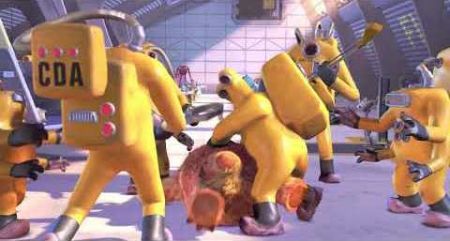Fire drill
|
Office anthropology™

|
Fire drill
/ˈfʌɪə drɪl/ (n.)
1. Management: That unexpected catastrophe that is certain to bugger up your weekend.
It will start with clear and present danger (albeit apprehended through the befogged goggles of war, confusion and miscommunication from panicked people in ops); gradually it will suck people in from across the organisation (legal, litigation, compliance, senior relationship management) until either:
- (a) it becomes so large that the combined mass of Grand Pooh-bahs involved creates a Schwarzschild radius that collapses in on itself (the “bang” scenario) or
- (b) even the legal eagles can see that none of their policies or patiently-negotiated terms can survive the brutalising effects of the commercial imperative (viz., to keep the client happy and do what it wants no matter what), whereupon under the weight of entropy will fizzle into a kind of boredom heat death in which everyone blithely carries on, business continues to be done, and legal and compliance set about constructing a concatenated side letters and non-binding mutual assurances of good faith whose only real purpose is plausible deniability when what has been swept under the rug returns for its inevitable final vengeance (the “whimper” scenario).
As in so many avenues of modern life — well, mine, anyway — whimpers outnumber bangs by an amount great enough to make the “whimper” scenario all but certain, but yet not quite certain enough that the “bang” risk can safely be ignored from the get-go. Thus, the formal pantomime that is modern corporate existence.
Those like the JC who were young parents at the millennium, who thus have every scene from Monsters, Inc. burned into their brains, know a “bang-disguised-whimper” as a “2319”.
Even though — nay, because — bangs threaten our very existence, they are far more fun than whimpers, and dealing with them is fully life-affirming — unless, deep down, you know they are really just jumped-up little whimpers masquerading as bangs. Which, by immutable rotation of the heavenly dials, they will be.
So, inevitably you must go through the motions for naught, and the upshot — regular fire drills — are a feature of commercial life.
2. Office ennui (archaic, falling out of use in the “new normal”): A fire alarm test or, better, an actual fire drill.
Fire alarm tests
Behold, the Friday afternoon clarion call over the Tannoys that declares all is well with the world — even the building’s fire alarms are working — and it is time for the buffalo to start their weekly migration towards the exits.
Fire alarm tests are a fun interruption to an all-hands conference call that is getting a bit tasty, as they function like a cold shower. Everyone has to pause, fuming, for about four minutes while Patricia Hodge goes through her pre-recorded motions; intoning first that this is just a drill: everyone should ignore it and get on with their work; then that this isn’t just a drill: the building is on fire, you must leave at once without using the lift or collecting your belongings; and then a reminder that what just happened was a drill, you were right to ignore it, but it is stopping being a drill now, so from now on you do have to pay attention, until the next time you are told don’t have to.
Only then can the unhappy, passive-aggressive accord of the conference call resume, and all that dissipated enmity can begin to build up again.
There is a story, passed now into folklore, that an in-house legal eagle at JPM and her favourite lawyer at Linklaters would frequently have conversations so discursive, wide-ranging and long that they would span both the JPMorgan fire drill, at 10:30 in the morning, and the Linklaters one, at four in the afternoon.
In any case, this kind of fire drill is, of course, usually followed by a fire drill in the first sense, meaning that despite all indications to the contrary your weekend is wrecked after all, and almost certainly on account of a damp squib.
Practice evacuations
Once a in a blue moon someone breaks glass, or burning toast in the kitchen sets off the smoke alarm — and the whole building has to go through the motions of evacuating for real, with ceremonial fire wardens in day-glo jerkins scuttling around behind them, comb up-turned recycling bins and janitorial cupboards for dawdlers who “might not have heard” the alarm. Here the post-Covid new normal — where getting employees to work at all is a job, and coaxing them into the office nigh impossible — presents a quandary. What happens to home workers? How are they supposed to know? What are they supposed to do? Should they go and stand outside by the clothesline at a make-shift assembly point? Should they put on a high-vis jacket and march round the loft inspecting it for errant children?
Eheu.
I must be off. Is that a fire drill I perceive?